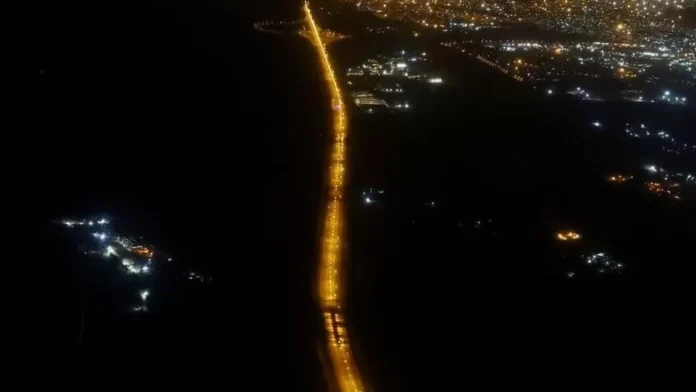
South Africa’s President Cyril Ramaphosa has appointed a minister of electricity – probably the least coveted job at the moment as the country is experiencing its worst-ever electricity crisis.
Millions of people are without lights every day – sometimes for up to 10 hours – in cities and towns across South Africa.
The power cuts, referred to as load-shedding, have caused much frustration, not least on the roads as traffic lights often do not work, causing gridlock.
Fortunately, some beggars and homeless people have seized the opportunity to kit themselves out in reflective vests – and to take responsibility for directing traffic.
I have been grateful for their intervention, especially when I have children in the car, worried that they are running late for school.
In return, the self-appointed traffic officers expect some money or food, which most motorists – except the most miserly – have no problem giving.
But it does make you wonder about the government. Why should homeless people have to direct traffic? Where are the hundreds of traffic officers, paid to do just that?
The worsening power cuts are a new reality for many of us, and are anxiety-inducing. There have been frequent reports of burglaries in homes and businesses, and car hijackings as criminals strike under the cover of darkness.
When the power is out mobile phone networks are also often down. This can be for hours, making communication difficult.
For those who cannot afford alternative sources of power like generators – and they are the majority – it means cold dinners, and homework with a lamp or candle.
The impact on the economy has been huge. Businesses have been closing down, and jobs have been shed as companies see their production costs rising as they have to get back-up power.
Only two days in the last quarter of 2022 were without power cuts.
Source: BBC



